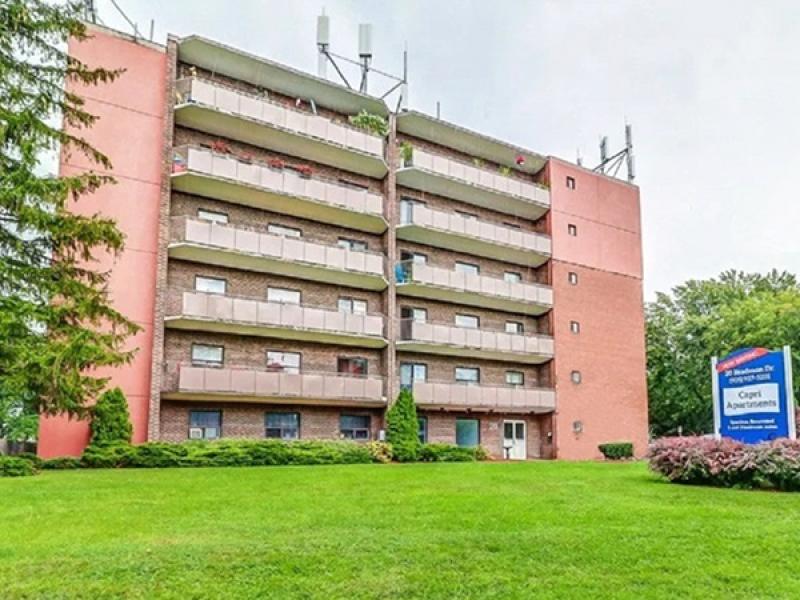 Pundits have already been talking about how Brexit – that exercise in political gamesmanship gone horribly wrong – might fan the flames of Canada’s housing market, but what about commercial real estate?
Pundits have already been talking about how Brexit – that exercise in political gamesmanship gone horribly wrong – might fan the flames of Canada’s housing market, but what about commercial real estate?
It’s been a few weeks now since not quite 52 per cent of Brits voted to exit the European Union. Markets have recovered much of the ground lost when a global kneejerk slashed some $2 trillion in value.
But the devil will be in the details of where we go from here and where this leaves British investors concerned about their prospects. The British government is facing pre-emptive legal action from a prominent law firm over how it can, or can’t, act on the results of the referendum to begin the lengthy process of untangling from the EU. A leading political voice for the “out of the EU” camp, United Kingdom Independence Party leader Nigel Farage, announced his resignation. Not untypical of whiners without solutions to make a mess in everyone’s beds and then leave the clean-up to someone else!
Too fluid to be predictable
It reminds me of Canada in 1979, when then prime minister Joe Clark lost a confidence vote in the House of Commons and Pierre Trudeau, who had announced his intention to retire, ended up returning when an election was called. U.K. Prime Minister David Cameron may have announced his intention to step down, but I wouldn’t be quick to assume he won’t have a change of heart as this whole mess continues to unfold. The situation remains too fluid and unpredictable to be sure of anything.
So far, much of the focus has been on what all this means for the strength of the U.K.’s real estate market, and how British investors might turn to some overheated residential markets in Canada as a flight to safety. They won’t be looking for properties with an eye toward generating rental income. They’ll just want to park their money in what they consider to be a safe and stable off-shore investment, and perhaps beyond the reach of the tax man back home.
A flight to safety in search of a landing
But what about Canada’s commercial real estate?
In a research note to investors at the time of the Brexit vote, Chicago’s LaSalle Investment Management was cautious on the prospects for Canada.
“Canada has long been viewed as a safe haven by foreign investors, but, at the same time, many are aware of the strong depth of institutional ownership here that tends to dominate and hold the best assets for the long term,” Chris Langstaff, senior vice-president, research and strategy, at LaSalle, said in a recent news article. “They know it is hard to break into the market or they really have to pay up to get a foothold. If the shine has worn off the U.K. for the time being, it could make other markets around the world more appealing, but I’m not sure that will drive a lot more capital towards Canada.”
So maybe investors looking to acquire individual properties, or portfolios of properties, may find Canada a difficult market to buy into, or at least perceive it as such, but what about real estate investment trusts?
A flood of foreign cash for Canada’s REITs?
Whether a Canadian REIT in the current market is a good buy for the long-term is a discussion for another article. But it does offer an easy point of entry into the Canadian commercial real estate market for investors just looking for a stable place to park money. Canada is quite stable politically in comparison to the U.K., or the U.S., with a majority government and, more importantly, no pending election.
The market volatility we’ve seen since the Brexit vote proves beyond doubt that big decisions to move large amounts of money are often not made with rational consideration. Perception is everything. How Canada is perceived will dictate how capital may flow to our shores.
What would be the impact of large sums of foreign cash flooding Canada’s REITS? Short-term and perhaps rapid increases in REIT share values. This may encourage REITs to expand their portfolios, or take some other action to capitalize on the additional buying power granted by this extra market value.
Chaos is a ladder for some
Such an influx of money in the short term would give existing shareholders a capital gain and the incentive to cash out, potentially to wait for share prices to drop again with a future exit of foreign buyers, and then buy back in.
Whatever may happen, there is turbulence out there. For those watching the markets who have the stomach for some risk, there may be material profits to be made.
To discuss this or any other valuation topic in the context of your property, please contact me at jclark@regionalgroup.com. I am also interested in your feedback and suggestions for future articles.







